The Importance of Hiring a Payroll Service for Your Business
Managing payroll is a critical yet complex task for any business. Ensuring that employees are paid accurately and on time is essential for maintaining employee satisfaction and compliance with labor laws. However, the intricacies of payroll processing can be time-consuming and riddled with potential pitfalls. This is where hiring a professional payroll service becomes a valuable use of company funds. Here are the key reasons why outsourcing payroll can benefit your business.
1. Accuracy and Compliance
Payroll services specialize in handling payroll tasks with precision. They are well-versed in the latest payroll regulations, tax laws, and compliance requirements. By hiring a payroll service, you can significantly reduce the risk of errors and ensure that your business complies with all relevant laws. This can help you avoid costly penalties and fines associated with payroll mistakes.
2. Time-Saving
Processing payroll involves numerous tasks, such as calculating wages, withholding taxes, and managing deductions. These tasks can consume a significant amount of time, especially for small business owners who wear multiple hats. Outsourcing payroll allows you to reclaim this time and focus on other critical aspects of your business, such as growth and customer service.
3. Cost-Effective
While there is a cost associated with hiring a payroll service, it can be a cost-effective solution in the long run. The time and resources saved by outsourcing payroll can outweigh the fees charged by payroll service providers. Additionally, professional payroll services can help you avoid financial losses due to errors or non-compliance with tax regulations.
4. Security and Confidentiality
Handling payroll internally requires managing sensitive employee data, such as social security numbers and bank account details. A professional payroll service uses secure systems to protect this information, ensuring confidentiality and reducing the risk of data breaches. This can give you peace of mind, knowing that your employees' personal information is secure.
5. Access to Expertise
Payroll service providers employ experts who are knowledgeable about the complexities of payroll processing. They stay updated with changes in tax laws and payroll regulations, ensuring that your payroll is managed correctly. This expertise can be invaluable, especially for small businesses that may not have the resources to hire a full-time payroll specialist.
6. Enhanced Reporting and Analytics
Professional payroll services provide detailed reports and analytics that can offer insights into your payroll expenses. These reports can help you understand your labor costs better and make informed decisions about your workforce. Having access to accurate and comprehensive payroll data can also assist in financial planning and budgeting.
7. Employee Satisfaction
Timely and accurate payroll processing is crucial for maintaining employee satisfaction. Errors in payroll can lead to disgruntled employees and decreased morale. By outsourcing payroll, you can ensure that your employees are paid correctly and on time, leading to a happier and more motivated workforce.
In conclusion, hiring a professional payroll service is a strategic move for any business. It ensures accuracy, saves time, and provides expert management of your payroll processes. By outsourcing payroll, you can focus on growing your business and achieving your goals, while leaving the complexities of payroll to the experts.
Sources:
Benefits of Using Payroll for Small Businesses - NRS (nrsplus.com)
What Are the Benefits of Using Payroll Services? - Milestone


Email: info@businessfinancials.net
Phone: (540) 932-8560
Fax: (540) 932-8564
2353 Jefferson Hwy
Waynesboro, VA 22980



